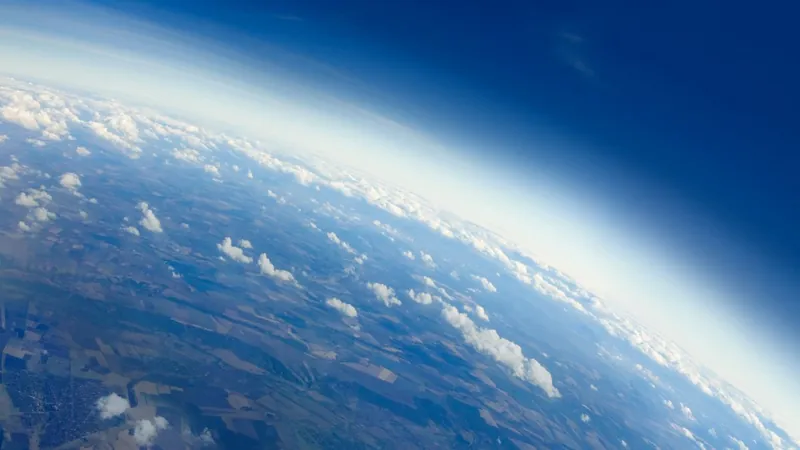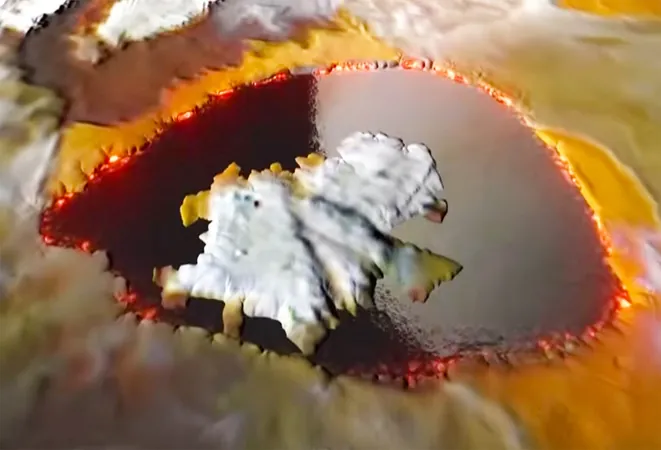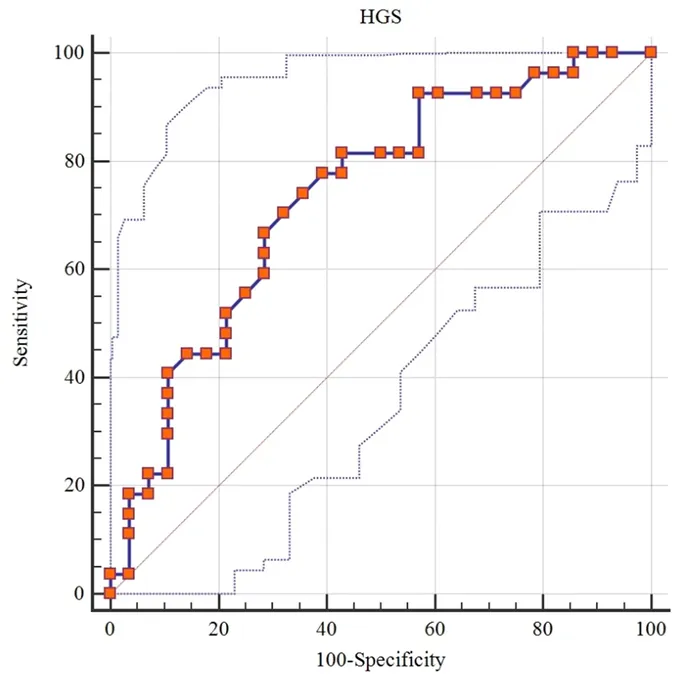
DARPA's Groundbreaking Discovery: Listening to Earth's Atmosphere to Detect SpaceX Falcon 9 Rocket Reentries!
2025-04-01
Author: Rajesh
In an astonishing breakthrough, researchers from the U.S. military's Defense Advanced Research Projects Agency (DARPA) have turned Earth's atmosphere into an advanced sensor, successfully detecting distant disturbances—including the reentry of SpaceX's Falcon 9 rocket.
This remarkable finding emerges from DARPA's innovative AtmoSense program, which aims to understand how sound waves and electromagnetic frequencies propagate through the atmosphere. The goal? To use these natural waves as a "global sensor" capable of detecting significant disturbances such as earthquakes, volcanic eruptions, and now, rocket reentries!
While initially focused on analyzing the sound waves generated by controlled explosions in New Mexico, the AtmoSense researchers stumbled upon an unplanned yet fascinating discovery. According to Michael Nayak, the program manager, their method turned out to be remarkably effective in identifying objects reentering the atmosphere. "The phenomenon is highly repeatable," Nayak stated, highlighting the potential of this groundbreaking technique.
The secret behind this innovative approach lies in measuring the flow of electrons within the atmosphere. Nayak illustrated it with an easy analogy: think of a stream of water from a hose. "If you put your fist in front of the hose, you'll notice a significant drop in water volume. It's much the same with the flow of electrons," he explained. When the team observed a dip in the electron content, they pinpointed a location that corresponded with the Falcon 9 rocket's reentry the same day.
The implications of this discovery are vast. The data indicates that the AtmoSense program can detect not only terrestrial disturbances but also aerial and spatial events that are crucial for national security, setting the stage for new protective measures. DARPA's announcement revealed that researchers will hold a virtual workshop in April to share insights with the scientific and national security communities, exploring potential applications of their findings.
As global security concerns rise and airspace becomes increasingly congested, DARPA's innovative AtmoSense program could redefine how we monitor and respond to atmospheric activities. This advanced detection technology has the potential to revolutionize safety protocols and improve our understanding of various phenomena occurring in the sky. Stay tuned as this exciting research unfolds—it could change the way we perceive events happening above us!



 Brasil (PT)
Brasil (PT)
 Canada (EN)
Canada (EN)
 Chile (ES)
Chile (ES)
 Česko (CS)
Česko (CS)
 대한민국 (KO)
대한민국 (KO)
 España (ES)
España (ES)
 France (FR)
France (FR)
 Hong Kong (EN)
Hong Kong (EN)
 Italia (IT)
Italia (IT)
 日本 (JA)
日本 (JA)
 Magyarország (HU)
Magyarország (HU)
 Norge (NO)
Norge (NO)
 Polska (PL)
Polska (PL)
 Schweiz (DE)
Schweiz (DE)
 Singapore (EN)
Singapore (EN)
 Sverige (SV)
Sverige (SV)
 Suomi (FI)
Suomi (FI)
 Türkiye (TR)
Türkiye (TR)
 الإمارات العربية المتحدة (AR)
الإمارات العربية المتحدة (AR)